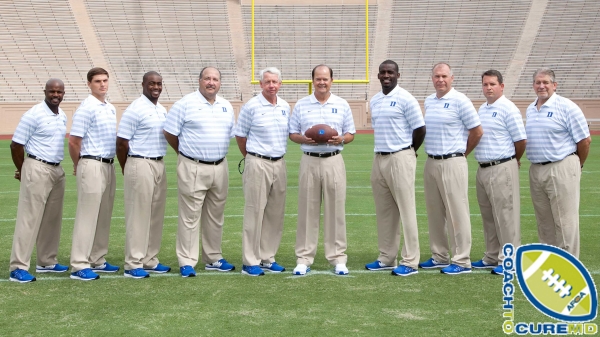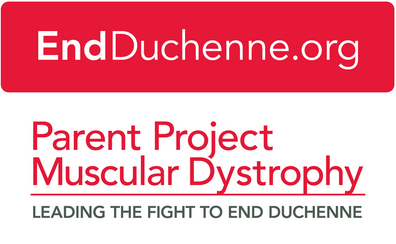Duke Blue Devils Supports the Fight Against Duchenne MD
Written by |

 Duchenne muscular dystrophy (DMD), a highly fatal hereditary disorder, affects one in every 3,600 young boys. It commonly begins with muscle weakness and loss in muscle mass. This muscle wasting is eventually replaced by fat and fibrotic tissue, eventually making it difficult to stand and walk, oftentimes by the age of 12.
Duchenne muscular dystrophy (DMD), a highly fatal hereditary disorder, affects one in every 3,600 young boys. It commonly begins with muscle weakness and loss in muscle mass. This muscle wasting is eventually replaced by fat and fibrotic tissue, eventually making it difficult to stand and walk, oftentimes by the age of 12.
The Coach to Cure MD program is a joint initiative between the American Football Coaches Association (AFCA), a 10,000-strong organization, and Parent Project Muscular Dystrophy (PPMD), the most prominent non-profit organization in the country dedicated to supporting DMD. The partnership was formed in 2008, as AFCA saw the unique relationship football staff and players could form with young males deprived of athletic ability, and be able to give them a different kind of strength.
This year, as is tradition, Duke’s coaches will show their support for the program by wearing a Coach to Cure MD patch, care of Windswept Marketing, and by calling on the sport’s fans to make a donation to the PPMD. Each football game for the season will also recognize a person living with DMD along with their family. Their unified display will be on Saturday, September 27, and will be broadcasted live on ESPN2. Kickoff is at 7:30 p.m.
One of the program’s major contributors this year, Northwestern Mutual, is among the country’s biggest corporate backers of college football. Thanks to generous corporate funding and individual donations over the past 6 years, the Coach to Cure MD program has raised more than $1 million for DMD research and treatment.
[adrotate group=”3″]
Those who would like to make a donation can log on to www.CoachtoCureMD.org or send an SMS with the word CURE to 90999 (the next phone bill will reflect the $5 donation to PPMD). Participants can also look out for some of the local DMD families during on campus football tailgate parties.
One of the threats DMD poses to patients is respiratory and heart failure. Earlier this year, an 18-year-old boy with DMD underwent surgery at UT Southwestern Medical Center for the first-ever placement of a small battery-powered left ventricular assist device (LVAD) in his heart.





